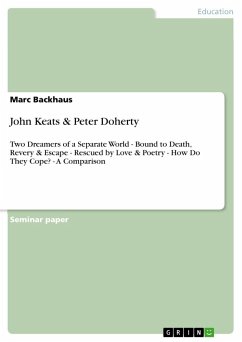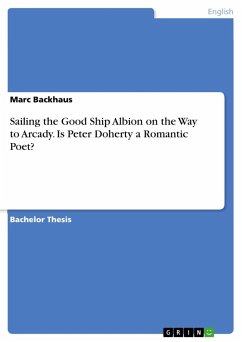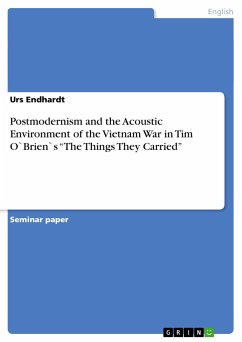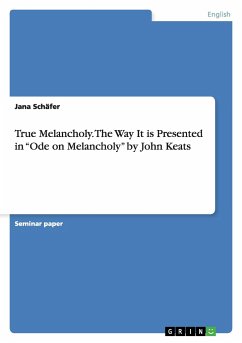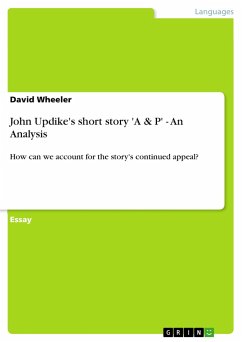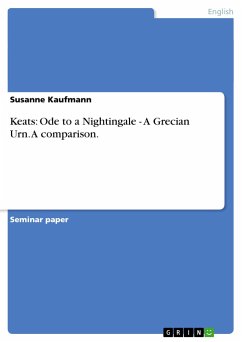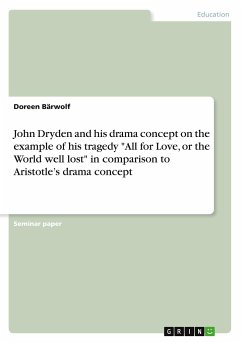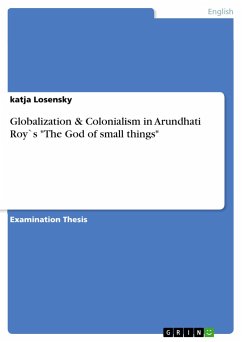Seminar paper from the year 2012 in the subject Didactics for the subject English - Literature, Works, grade: 1,0, Humboldt-University of Berlin (Institut für Anglistik / Amerikanistik), language: English, abstract: John Keats and Peter Doherty are seen as great poets of their time, and outstanding British romantics. While one's time is in fact the "rise of romanticism" (Bate 1967:73) during the late eighteenth and early nineteenth century, where poetry and criticism are established and acknowledged career pursuits (cf. 82, 224), the other's is today, the post-modern globalised age of entertainment, where art solely concerned with poetry has become scarce. Doherty therefore expresses himself through music, one of today's most popular arts, aiming for "success as a popstar [and] performance poet" (Doherty 2009:9). Keats dies at 25 believing himself to be a failure (cf. Bright Star 1:49:24) after a life of confronting harsh criticism, "incredible project[s]" (Bate 1967:193) and theburden of "what the great art of the past has achieved" (Bate 1967:viii) and it is only after his death that he becomes acknowledged as one of the major romantic poets - whereas Doherty is already during his lifetime being considered a genius, praised for his "elegant lyricism" (Doherty 2009:126) and has become "a part of celebrity culture [ - as well as] part of a hospital waiting list" (222), leading "a rather 'unsavoury' yet romantic existence" (132).Despite the two men's many differences, they both share various elements that deeply mark their lives and works, such as death and escape to and from it, the commitment to poetry & strive for perfection, a love story that never seems to work out, criticism gnawing at them from the outside, a love for ekphrasis, revery, rootlessness - but most of all the dream of a separate world, which they create through their poetry and use to deal with the reality they live in.Bearing in mind Bate's words "that poetry and indeed all the arts have seemed to become increasingly specialized or restricted throughout the last two hundred and fifty years [and that we] face even more directly the problem that was widely discussed [...] throughout [Keats'] lifetime: where are [...] the 'greater genres' [...] or at least reasonable equivalents?" (Bate 1967:viii), this paper will compare the two poets and their works in two different ages of predecessor pressure, making use of the extraordinary amount of "available knowledge" (viii) we today have access to about the great romantic and the tabloid rockstar, and aim to answer the question: How do they cope with themselves, with the world of their time and their own?
Hinweis: Dieser Artikel kann nur an eine deutsche Lieferadresse ausgeliefert werden.
Hinweis: Dieser Artikel kann nur an eine deutsche Lieferadresse ausgeliefert werden.

